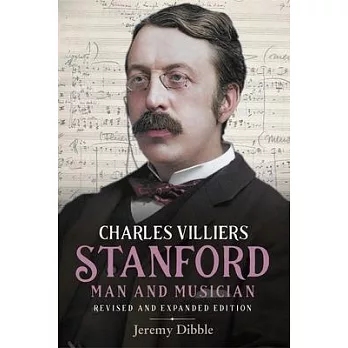Substantially revised and expanded edition that sheds new light on Stanford’s career as composer, conductor and teacher, as well as promoter of opera in English and arranger of Irish folk music.
The Anglo-Irish composer Charles Villiers Stanford (1852-1924) is often remembered as the teacher of many of Britain’s first generation of twentieth-century composers. He was, however, a composer of great diversity. An enthusiastic composer for the theatre and opera house, he was a symphonist, songwriter, and composer of church music; his national, indeed, international reputation was also reflected in the many works he wrote for some of the most prominent virtuosi of the time. Driven by a strong sense of ambition, he sought to advance the cause of British music not only as a composer but as a university professor, practical musician and conductor. Pre-eminent in the 1880s and 90s, he was eclipsed by Elgar during the Edwardian years, but his creative powers continued unabated until the early 1920s. As the author of a wide range of musical works, which we are now able to experience through more live performances, broadcasts and recordings (the latter has expanded exponentially since the first edition of this book), we are now aware of the composer’s greater musical achievements, particularly in the province of opera. This expanded and revised edition offers new musical and biographical discussion drawing on a wider range of primary and secondary sources. It brings new insights to Stanford’s life as performer, conductor and teacher/author at Cambridge and the RCM, as well as an arranger and editor of Irish folk music. Another emphasis in this revised edition is Stanford’s lifelong aspiration to promote opera in English and the establishment of an English National Opera in London. Stanford’s politics, particularly his opposition to Gladstonian Liberalism and to Home Rule for Ireland, also receive rightful discussion within the context of his creative output.


 天天爆殺
天天爆殺  今日66折
今日66折 





















 博客來
博客來 博客來
博客來 博客來
博客來 博客來
博客來 博客來
博客來